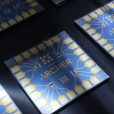Race Oncology (ASX:RAC) has taken a step towards the development of a new cancer-fighting drug therapy, dosing the first patient in its Phase 1 trial of RC220, a reformulated version of bisantrene, aimed at treating advanced solid tumours.
The early-stage trial marks a key milestone for Australia’s biotech sector and positions Race Oncology at the forefront of combining targeted cancer therapy with cardioprotective intent. Importantly, the first patient was safely dosed at Southside Cancer Care Centre in Miranda, NSW, with no phlebitis or adverse events reported.
CEO Sees Major Inflection Point
“The safe dosing of the first patient in our solid tumour trial is a major milestone for Race Oncology,” said CEO Dr Daniel Tillett.
This trial represents the first human use of RC220 in solid tumour patients and is designed to assess not only safety and tolerability, but also the pharmacokinetics and dose-limiting toxicities of RC220 in combination with the chemotherapy agent doxorubicin.
Establishing Trial Momentum Across APAC
Following the successful activation of the Miranda site in April, a second site—Gosford and Wyong Hospitals under the Central Coast Local Health District—has also opened for enrolment. Race Oncology plans to recruit up to 33 patients across multiple sites in Australia, Hong Kong, and South Korea in Stage 1 of the trial.
Dr Tillett noted: “This is the beginning of an important program to assess the safety, tolerability and therapeutic potential of RC220.”
Trial Design Enables Speed And Flexibility
The open-label study will use a Bayesian design, allowing for faster data analysis and adaptive dosing as results are obtained. The first stage of the trial will focus on identifying the maximum tolerated combined dose (MTCD) of RC220 and doxorubicin. In addition, researchers will assess effects on clinical biomarkers including m6A RNA.
Following interim analysis, an additional 20 patients will be treated at the optimal dose in Stage 2 to further evaluate safety, tolerability and early signals of anticancer and cardioprotective effects.
Race Oncology expects to provide regular trial updates, while noting it will not report individual patient-level data.
Doxorubicin And Bisantrene Show Potential In Solid Tumours
RC220 combines the historical anticancer properties of bisantrene with a modern formulation. Doxorubicin is already known to deliver up to 35% overall response rates in cancers such as breast, small cell lung, ovarian, bladder, liver, and prostate cancers. Bisantrene has been tested in over 50 clinical trials and demonstrated efficacy in both solid tumours and blood cancers.
Preclinical studies by Race Oncology have also shown that bisantrene enhances the cancer-killing effect of doxorubicin in 85% of 143 cancer cell lines screened – supporting the rationale for this combination trial.
Patient Access And Next Steps
Eligible patients are being identified through participating clinical sites. Those under the care of non-participating oncologists may be referred to a trial site doctor, provided they meet eligibility and give informed consent.
Dr Tillett acknowledged the broader effort behind the program: “We are grateful to all the patients, investigators, and clinical teams who have made this trial possible. I would also like to thank our shareholders for their strong and loyal support that has enabled us to bring RC220 to patients in the clinic.”
As RC220 enters clinical testing, Race Oncology continues to progress its broader development plans, which include exploring low-intensity applications in leukaemia and investigating RC220’s novel mechanism targeting the m6A RNA pathway – a driver implicated in multiple cancer types.













1 Comment
Shraddha13
Thank you for sharing! To explore further
Replyhttps://www.360iresearch.com/library/intelligence/oncology-drugs